
Before we begin, we’re just going to clear something up real quick. We’re not saying work experience isn’t important. A survey by Universum UK in 2015 revealed that 58 per cent of employers rate work experience as ‘the most popular qualification among those presented.’ Gulp. Writing a CV when you have had no work experience might be a bigger task than expected.
The good news? The second most popular qualification is the applicant’s personality. So, if you find yourself in a chicken and egg scenario having to apply for work experience with no work experience, you might be able to get by.
We’ve got a few actionable tips that will hopefully help you get your foot on the career ladder. (So you can get that first bit of work experience for the next time you update your CV!)
1. State your career objective
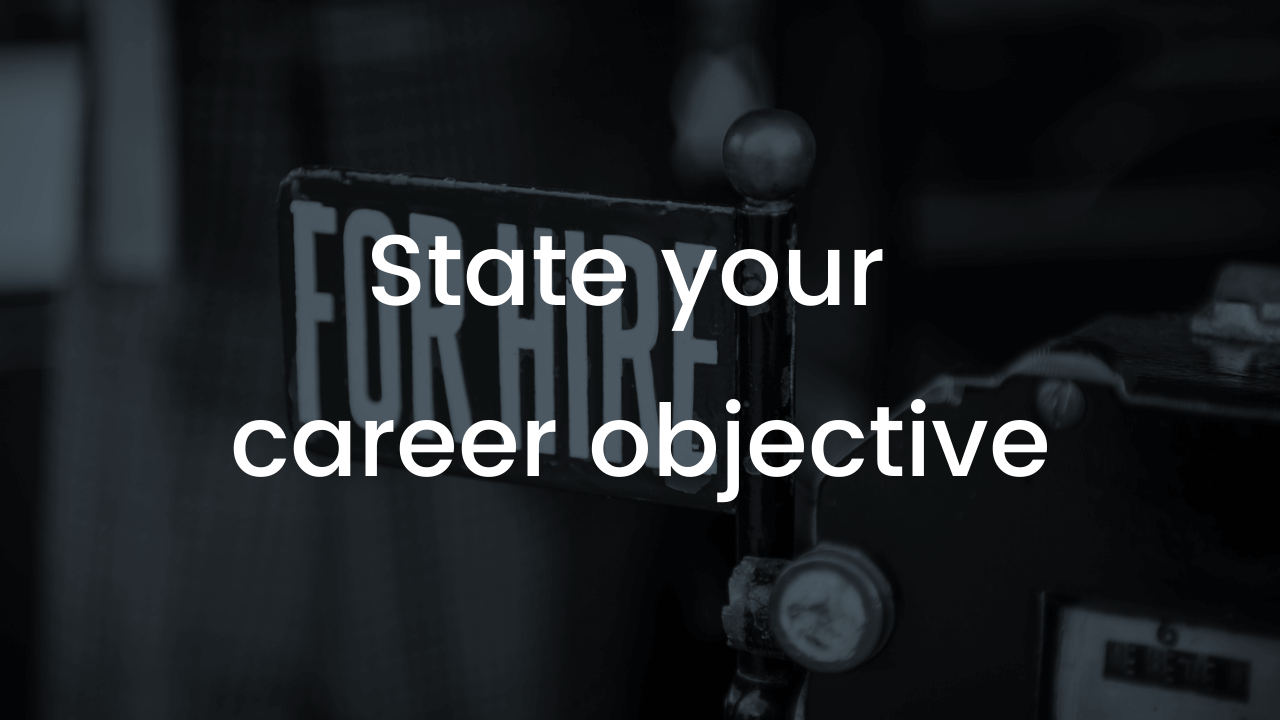
Say it loud, and say it proud, people! Some may say that putting down a ‘career objective’ in a CV is a little old-school and out of fashion. However, if you really think about it – that’s exactly what your LinkedIn headlines for, so why not export it to your paper CV?
Some people think a career objective is what you want your dream job to look like. Well, this is true for when you’re writing down your career objective in your diary before bed. For your CV, the career objective serves an entirely different purpose. It should showcase your skills in a way that proves you’re perfect for the job you’re applying for.
Here are a couple of examples of what we mean:
For students pre-graduation looking for work experience:
“Current third-year student reading History (predicted 2:1) with exceptional interpersonal and analytical skills. Looking to use my abilities to successfully fulfil [Position] at your company. My desire to learn new skills quickly will help your company meet its [department] milestones.”
See how that objective highlights what’s good about you and how the company will benefit with your presence? That’s what makes it so strong.
For recent graduates looking for an entry-level job:
“Recent graduate (2:1) with a BSC in [Field of Study]. Looking to leverage my experience as [insert university society exec position] to effectively meet the requirements of [Position] at your company. A quick learner and hard worker ready to help achieve company objectives and take on more responsibility.”
Adding your degree is crucial here, and if you’ve had any other experiences of leadership at university, that will look particularly attractive here.
Our top tip here is to edit your career objective to fit the skills or traits that the employer lays out in the job descriptions. Which brings us on to:
2. Tailor your CV to the role by mapping it out to the employer’s priority skills and values
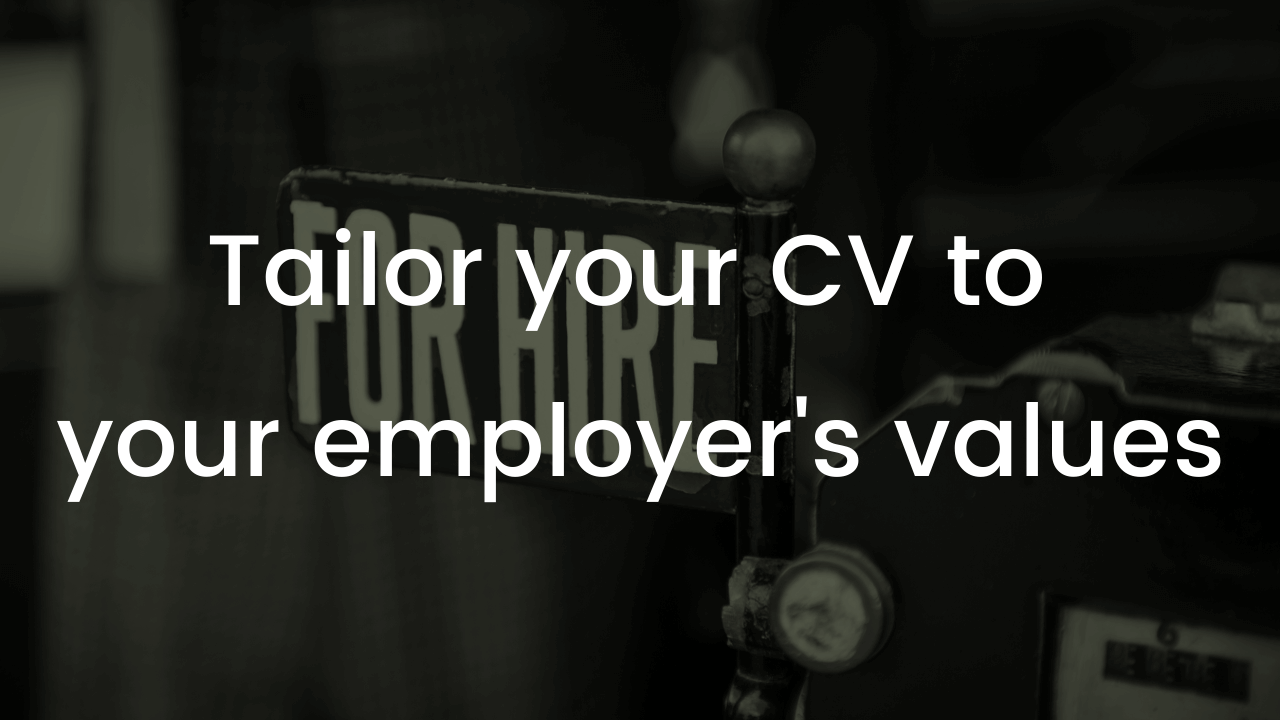
Read the job description and break it down, son. Usually they’ll have an ‘About You’ or ‘Ideal Candidate’ section that details what the employer feels will be a good personality fit for the role.
This is exactly why firing off the same CV to multiple employers for multiple positions is a huge no-no. Companies often look for very specific skills and personality traits. Here’s how you can tailor your CV better:
- List down all of the extra-curricular activities you’ve had at university.
- Map out all of the projects and tasks you’ve been involved with in those activities.
- Annotate them with ‘skills acquired’ or ‘lessons learnt’ – for example if you needed to design a flyer for a society event, you acquired design skills and marketing experience!
- When you’re tailoring your CV, take a look at your ‘master list’ of skills and traits and adapt to the job description appropriately.
This way, your employer will read the CV and get a better idea as to whether you’d take to the role like a fish to water. Unless it’s a structured graduate scheme, companies often want someone to hit the ground running at work. Prove to them you’ll be able to do just that.
3. Add a major achievements section
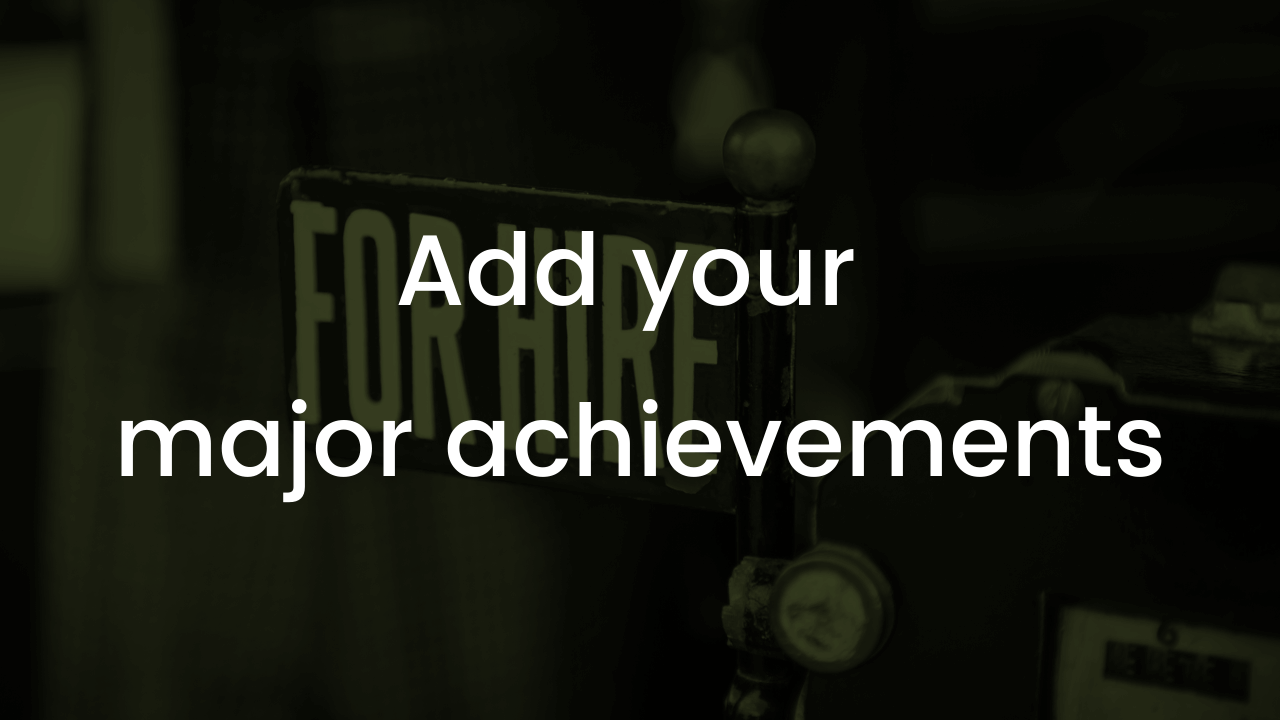
This is not a time to be modest, pals. #Humblebrag your way to the job of your dreams by noting down your most important achievements.
If you feel like you haven’t had any ‘major achievements’, think again. Just because they were university or extra-curricular activities doesn’t mean they aren’t just as valuable as paid work experience! Were you involved in Model United Nations? Arrange a large social event for a society? Acted as treasurer for a sports club? These are all still great things to add to your CV that show off your skills.
Bullet-point form is best, of course. We’d suggest you structure it like [project], [detail], [what was achieved]. A bit like this:
- Served as editor-in-chief for Hustle Magazine, a specialist publication on university startups that reached a circulation of 10,000 readers in one year.
- Appointed head of events at One World Week, led a team of twenty to organise events drawing crowds of 5,000+ to cultural events at university.
- Creator of #TimeToTalk, a weekly Twitter Chat at university about mental health, which regularly received 100,000 Twitter impressions weekly.
Laying your best achievements down with the project and the results obtained clearly shows off your great potential as a job candidate. It’ll also help the hiring manager consider your CV over someone with professional work experience.
4. Pad out your education section
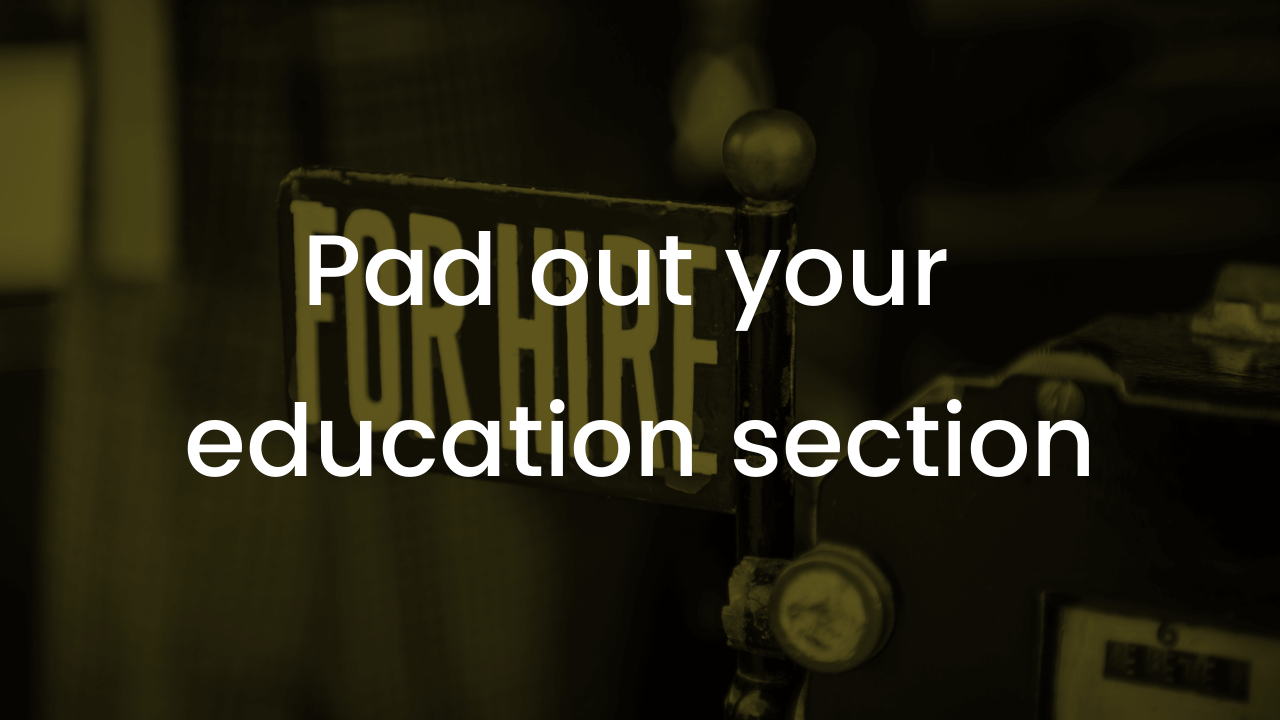
Right, so, maybe you haven’t been super involved in university activities or extra-curriculars. Firstly, if you haven’t, you probably should! There’s still time, and it’s the best way for you to diversify your skills and experience. Secondly, don’t panic – you can expand your education experience to help pad out your CV.
Usually, the education section of the CV is fairly brief. As you adapt your CV after you get more work experience, this section will hopefully get smaller and smaller. For the moment, you should add:
- Your degree result/your predicted degree result
- Any academic awards you’ve received
- Relevant coursework
- Any published work to do with your degree
- Any sports/university society involvement
Here it’s important to highlight that you’re still a well-rounded candidate. Show off your academic strengths, but also how you’ve been involved in collaborative projects (all those group presentations you were
5. Include your social media profiles
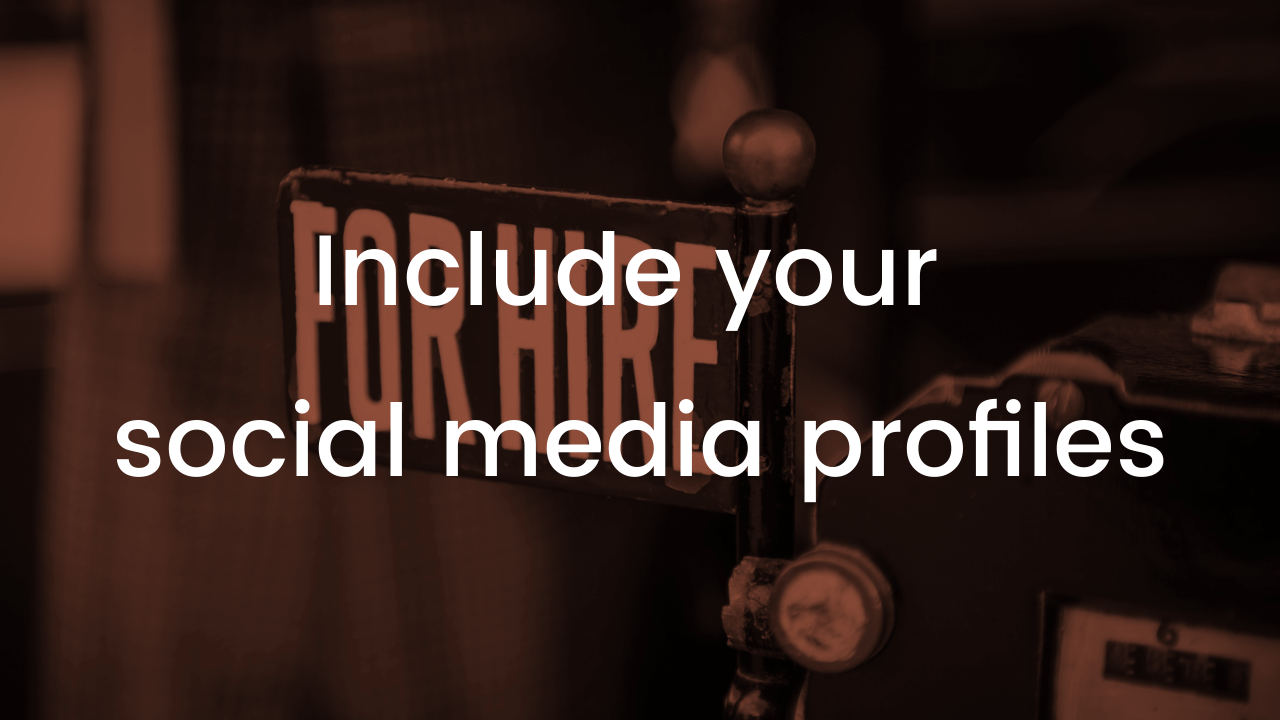
Hear us out. You might be strongly inclined to hide yo’ Instagram and privatise your Twitter. In reality, your hiring manager isn’t looking through them to catch you out for photos of your drunken nights out. Instead, they’re looking for flashes of your personality. After all, they’ll have to figure out whether you’d be a great person to work alongside with.
Treat your social media profiles as the ‘further reading’ section of your CV. It’s where you can talk about all the things you couldn’t fit into your resumé. Have a blog you’ve been writing on the side? Sell crafty things on Etsy? Talk about it! It shows off a different side of you, one that your employers might just be interested in.
It’s a tough world out there for job applicants. These tips will hopefully help you get that first rung of work experience you need for that pesky career ladder. Any tips we missed? Tweet us @DebutCareers with your best ones.


